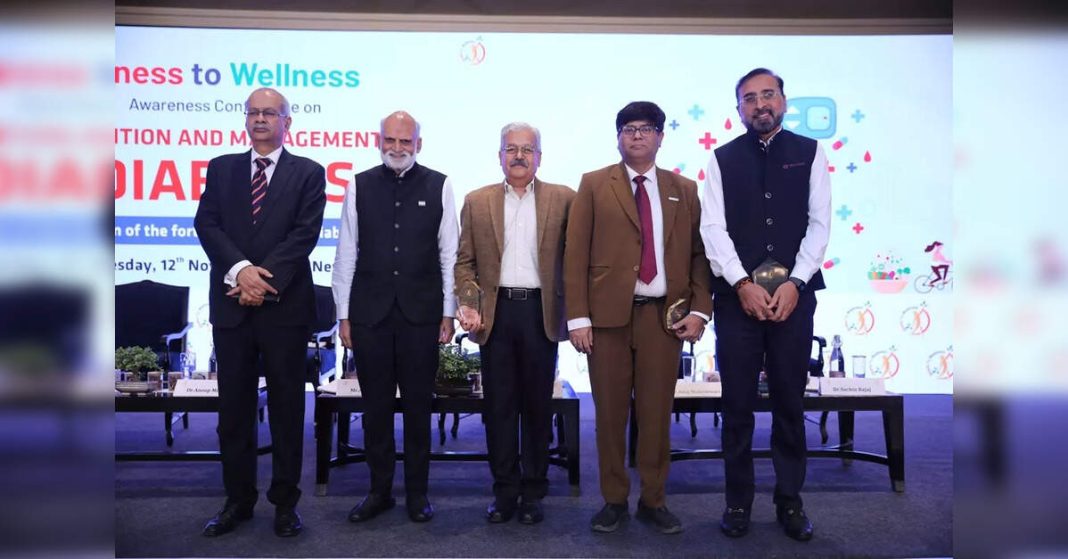The landscape for women in India, while witnessing significant progress in many spheres, is simultaneously marked by an alarming increase in vulnerabilities and risks. A recent urgent call to action highlighted by ETHealthworld underscores this critical juncture, urging stakeholders to acknowledge and address the growing perils faced by women across various dimensions of their lives. This isn’t merely a statistic; it represents a complex web of challenges spanning health, safety, and socio-economic factors that demand immediate and concerted efforts for mitigation.
The Expanding Health Horizon of Vulnerability
Women’s health in India continues to present a paradox of advancements alongside persistent disparities. While access to certain healthcare services has improved, new and existing threats are escalating. Non-communicable diseases (NCDs) such as diabetes, cardiovascular conditions, and certain cancers are increasingly affecting women, often going undiagnosed or inadequately managed due to a confluence of socio-economic barriers, lack of awareness, and gender-biased healthcare seeking behaviours. The mental health crisis, exacerbated by societal pressures, domestic responsibilities, and the aftermath of global events like the pandemic, disproportionately impacts women, yet remains largely under-addressed due to pervasive stigma and limited access to psychological support.
Furthermore, maternal health, while seeing improvements in some indicators, still faces hurdles, especially in remote and underserved areas where quality care, nutrition, and emergency services are scarce. The digital divide also plays a subtle yet significant role, limiting access to health information and telemedicine for many women, particularly in rural settings. The call to action stresses the imperative for a gender-sensitive healthcare framework that not only addresses biological needs but also accounts for social determinants of health, ensuring equitable access, preventive care, and robust mental health infrastructure.
Societal Undercurrents and Safety Concerns
Beyond health, women in India confront a daunting array of societal risks that threaten their safety, dignity, and autonomy. Gender-based violence, encompassing domestic abuse, sexual harassment, and assault, remains a pervasive issue, often exacerbated by deep-seated patriarchal norms and slow justice delivery mechanisms. The digital realm, while offering avenues for empowerment, has also emerged as a new battleground, with cyberstalking, online harassment, and image-based abuse becoming increasingly common threats that erode women’s sense of security and freedom.
Economic vulnerabilities also contribute significantly to women’s precarious position. The gender pay gap persists, and women often find themselves in precarious employment situations, lacking social security benefits and financial independence. This economic disempowerment can trap women in abusive situations and limit their ability to access essential services or pursue education and career growth. Addressing these risks requires a multi-pronged approach that tackles systemic inequalities, fosters a culture of respect, and creates robust support systems for survivors.
“The increasing risks faced by women are not isolated incidents but symptoms of systemic gaps in our protective mechanisms and societal attitudes. A piecemeal approach will no longer suffice; we need a holistic, integrated strategy that prioritises women’s well-being at every policy level,” comments Dr. Priya Sharma, a prominent gender equality advocate, on the urgent need for comprehensive reforms.
Charting a Course for Collective Empowerment
The urgent call for action is not merely an alarm bell; it’s a blueprint for a collaborative response. Tackling the escalating risks requires a concerted effort from all sectors – government, civil society, private organisations, and individual citizens. Policy reforms must go beyond punitive measures to include preventative strategies, focusing on gender sensitisation from an early age, promoting women’s economic participation through skill development and equitable opportunities, and investing in safe public spaces and digital infrastructure.
There is a critical need to strengthen grassroots initiatives that empower women through education, legal aid, and self-help groups. Digital literacy programs specifically designed for women can equip them with the tools to navigate the online world safely and leverage its opportunities. Healthcare systems must be reoriented to provide comprehensive, accessible, and stigma-free services, particularly for mental health and reproductive well-being. Ultimately, fostering an environment where women feel safe, valued, and empowered to make their own choices is paramount for India’s equitable and sustainable development.
The rising tide of risks confronting women in India is a pressing issue that demands immediate and sustained attention. Ignoring these challenges not only undermines the progress made but also jeopardizes the future well-being of half the population. The call to action by ETHealthworld serves as a stark reminder that ensuring women’s safety, health, and empowerment is not just a moral imperative but a foundational pillar for a resilient and thriving nation. It is time for collective responsibility to translate concern into tangible, impactful action.




